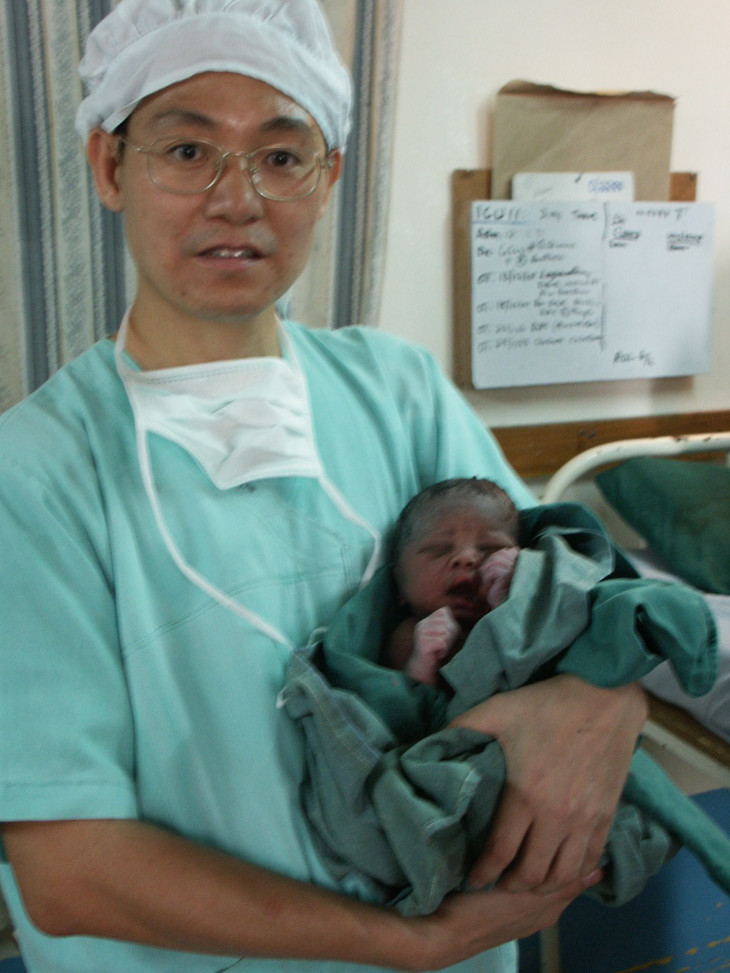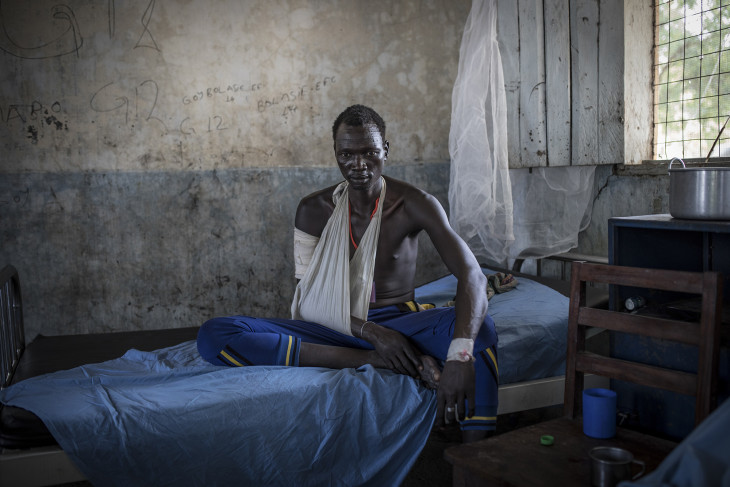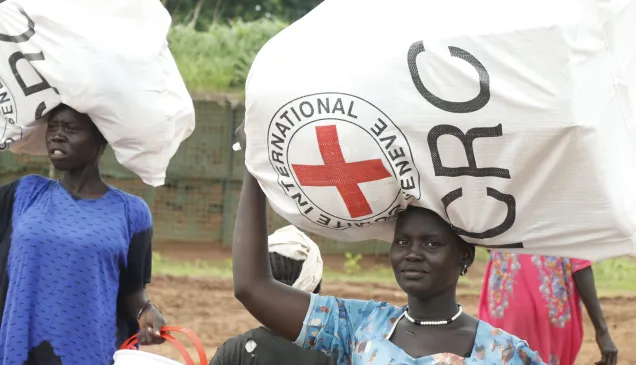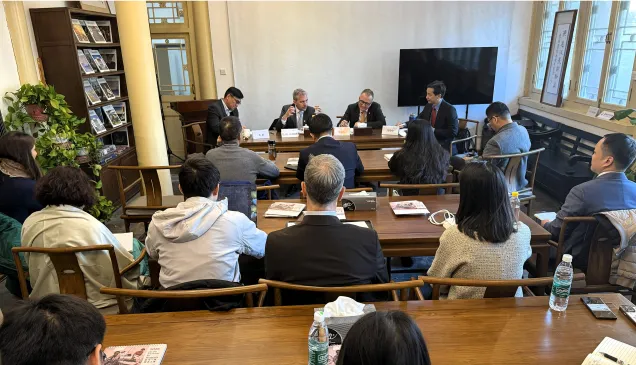Two decades of caring and curing: The humanitarian journey of a Chinese doctor
After a tough mission in conflict-affected South Sudan followed by a three-week quarantine period, it was a moment of pure joy when Dr Yiu Kai Au could finally join his family and friends in Hong Kong for the traditional Dragon Boat Festival recently. Yet, it reminded him of a totally different Dragon Boat Festival ten years ago.
In 2011, Dr Au was on a humanitarian mission at Teme Hospital in Port Harcourt, Nigeria. On the very morning of the Dragon Boat Festival that year, Dr Au had to carry out as many as seven open surgeries!
His diary entry from that day reads: "This is a case of a gunshot to the back, where the victim was shot in the right spine. The bullet was in the left abdominal wall, just below the skin. And from the position of the bullet, we guessed that it may have hit some vital organs in the body...We found tears in his inferior vena cava, pancreas, duodenum and stomach. I fixed all the tears one by one."
Kenya: How it all started
For the surgeon born in Hong Kong, his first humanitarian mission came at the exact moment when he needed a shift in his life. In 2000, when Dr Au approached the age of 40, the so-called "age with no perplexities", he was even more perplexed about what lay ahead in his professional career in wake of the growing technological advancements.

He grappled with questions like: "Will the sympathetic touch of a doctor's hands be inevitably replaced by the apathetic mechanical arms? Is there still room for generalists when specialists are emerging in every single division and subdivision of a profession? Should the bulk of social resources be devoted to sophisticated technological breakthroughs or the universal medical coverage of the population? Should doctors serve their patients without seeking personal gains, or should they pursue handsome salary packages as their ultimate goals?"
At the crossroads of his life, Dr Au agonized over which path to choose, finally deciding to apply for the position of a war surgeon with the International Committee of the Red Cross (ICRC). In 2002, he finally reached a turning point when Dr Au went on his first humanitarian mission as a war surgeon in the Lopiding Hospital in Lokichogio, Kenya.
Preparing in every possible way, Dr Au not only pored over all the ICRC war surgery brochures, but also visited the Lopiding Hospital in Kenya for five days at his own expense. Learning that obstetrics and gynaecological services were the most in demand in the region, he returned to Hong Kong to learn how to perform caesarean sections at a friend's hospital.
But the first delivery that Dr Au performed turned out to be trickier than he could have ever imagined. The patient had kyphosis, a spinal disorder causing her back to curve abnormally, and her previous delivery had also been via the caesarean section. Meticulously prepared and equipped with solid surgical skills, Dr Au successfully carried out the caesarean section. At the moment he held the baby in his arms, the surgeon's joy was no less than that of the mother lying on the hospital bed.
It was also in Lopiding Hospital that Dr Au treated his first gunshot patient. "It was the first time I had seen a gunshot. Hit by shrapnel in his eyes, the patient had corneal inflammation. Although I was a bit scared at the beginning, I managed to remove the shrapnel from his eye."
Embarking upon a lifelong journey
At the end of his first humanitarian mission, which spanned three-and-a-half months, Dr Au felt delighted to have used his surgical skills to the full extent possible and was deeply touched by the resilience of the local population in the face of hardship and the strong bond among people. He was inspired by the beauty of simple life, and a short departure from his routines helped him to forge a closer relationship with his family. Thus, he decided to make humanitarian assistance an integral part of his life.
Thereon, Dr Au went on over 20 humanitarian missions, mainly for the ICRC and Doctors Without Borders (Médecins Sans Frontières), to conflict or disaster-affected countries and areas such as South Sudan, Iraq, Nigeria, the Philippines and Haiti. Performing a caesarean section with only 20 pieces of gauze, diagnosing bone fractures without the X-ray, improvising an arm sling with whatever materials were available at hand and jogging with a first-aid kit – Dr Au did all of this, and more, over the past two decades.
Due to his busy schedule at work, he could only go for a one-month humanitarian mission every year. But that changed in 2019, when Dr Au retired as a consultant surgeon from a public hospital in Hong Kong.
COVID-19: A fleeting thought to quit
Eager to go back to the field more often post his retirement, Dr Au said, "I would sometimes regret not being able to follow up on the progress or recovery of my patients during the short missions." Being able to take up longer missions was a dream come true for him.
Dr Au immediately went on two successive missions in Akobo County Hospital, South Sudan, each for three months. But in the beginning of 2020, when the COVID-19 pandemic swept across the globe, Dr Au was stuck at home until October 2020, when he got a one-year assignment with the ICRC in Juba Military Hospital in South Sudan.
As part of the restrictive measures to curb the spread of COVID-19, Dr Au was quarantined upon his arrival in South Sudan. Being in a country in dire need of medical services, but unable to get to work immediately, Dr Au felt frustrated and anxious. Isolated in a small room for days with no face-to-face communication, Dr Au felt so tormented that he had a fleeting thought of ending his mission early. But with the encouragement of family and friends, he finally made it through and started his mission with more enthusiasm than ever.

A patient with gunshot injury from inter-communal clashes in Akobo County Hospital, South Sudan. ©ICRC/SERIEX, Florian Bastian
The legacy of humanity
During these humanitarian assignments, Dr Au also got a chance to wear multiple hats. Not only did he work as a surgeon, but he also played the role of an orthopaedist, an anaesthesiologist, a physical therapist, a nurse and even a cleaner of the operating room on different occasions.
Though he has saved many patients over the years, Dr Au does not consider himself a hero. In Dr Au's opinion, he was the one who felt grateful: "I learnt most of these skills and techniques during my many overseas missions. I couldn't have practiced these skills in Hong Kong."
In 2008, Dr Au worked with Dr Philip de Almeida in South Sudan. The Sri Lankan doctor from Germany has a rich experience in humanitarian missions and despite hard conditions, he could always manage to keep the obstetric department neat and tidy. Dr Au never spares his compliments for Dr Philip:
I owe much of my obstetric know-how to him – how to do ultrasounds, how to do caesarean sections and curettage and how to perform other obstetrical care techniques. This is the most precious gift I got from this programme.

Dr Au with Dr Philip de Almeida (middle) and another colleague in Aweil, South Sudan, in 2008.©Yiu kai au
Dr Au has always been keen to share his expertise with the local staff so that they could upskill themselves and take care of the patients even without the help of expatriate doctors.
In the field hospitals that Dr Au worked in, most of the local staff had no professional training from medical schools. But Dr Au was very impressed by their eagerness to learn and their enthusiasm at work. Fondly recalling one such instance, Dr Au shared, "I was in Liberia in 2006 and had to train the local staff in the management of bird flu. During a presentation where I shared about Hong Kong's management of bird flu in the past, more than 30 eager-looking young men squeezed themselves into a small room of merely 20 square metres just to listen to me."
Be it as the chairman of the Training Committee of the Health and Care Division of Hong Kong Red Cross or as the ICRC senior surgeon in South Sudan, or while sharing his experiences in international humanitarian assistance with students or encouraging more young people in Hong Kong to participate in international rescue missions, Dr Au's life has been a testimony to the spirit of humanity that he so passionately advocates.
In 2009, as a winner of the Hong Kong Humanity Award, Dr Au had expressed his wish to see more Chinese faces in the humanitarian sector. Over a decade since then, Dr Au says he is delighted to see that a lot of young people from China are now involved in international relief efforts in various areas of expertise. He now hopes to pass down his skills and knowledge to the coming generations.
If my son or grandson has this chance to serve in the humanitarian sector, I will be very supportive of them. I'm sure it will expand their experience and vision. It will make them more mature and humbler.



